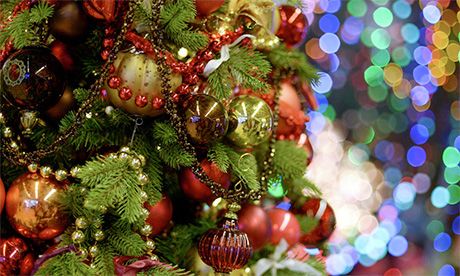No one wants to be the innkeeper in a Christmas pageant.
You know the one, the door-slamming landlord who turned away Joseph and Mary before they became the Holy Family.
Any other role is better that that one.
Even wearing the scratchy sheep costume is better or being the rope pull on the flying angel—anything but the mean innkeeper of Bethlehem.
This failure to give a bed to a tired pregnant teenager has had far-reaching consequences.
Imagine how different Christmas would be if the couple had not been left out in the cold.
In one small action of thoughtfulness, we would have been spared all those plastic light-up outdoor Nativity scenes.
If only we could do it all over again.
The Latin American tradition las posadas gives participants a chance to be better than the original host.
For several nights before Christmas, groups accompanying children dressed as Joseph and a pregnant Mary travel from door to door looking for lodging.
The procession can feature lanterns, singing, a donkey and a whole lot of adorable kids dressed in biblical costumes.
On these nine nights, the holy couple is welcomed inside, and festive foods like tamales and atole are served.
The community gathers and ritually rewrites the Scriptures, this time welcoming the strangers in from the cold.
If Jesus and Mary had been regular guests at the inn, their room would have been reserved, their names would have been known and the story would be different.
But it was their first time at this inn, and they didn’t know you had to show up early.
They didn’t know a lot of things.
How could they?
That is what being a stranger means: Not being known is part of it, but not knowing is the rest.
But even if posadas are not part of your tradition, this Christmas we can all do better than the innkeeper who shut the door.
Many of us will be gathering with family and friends for Christmas Mass.
And, as usual, we will be a mixed group made up of those who get to Mass regularly and those who do not.
Our experience of Christmas Mass is going to be different depending on our place in the mix.
For the regular Mass-goers, it will seem homey and routine, and a nod of recognition is going to be enough.
But the Catholics who go to church only on Christmas and Easter will carry with them the reasons they usually do not make it to Mass.
So they are going to need more than a nod. Continue reading
